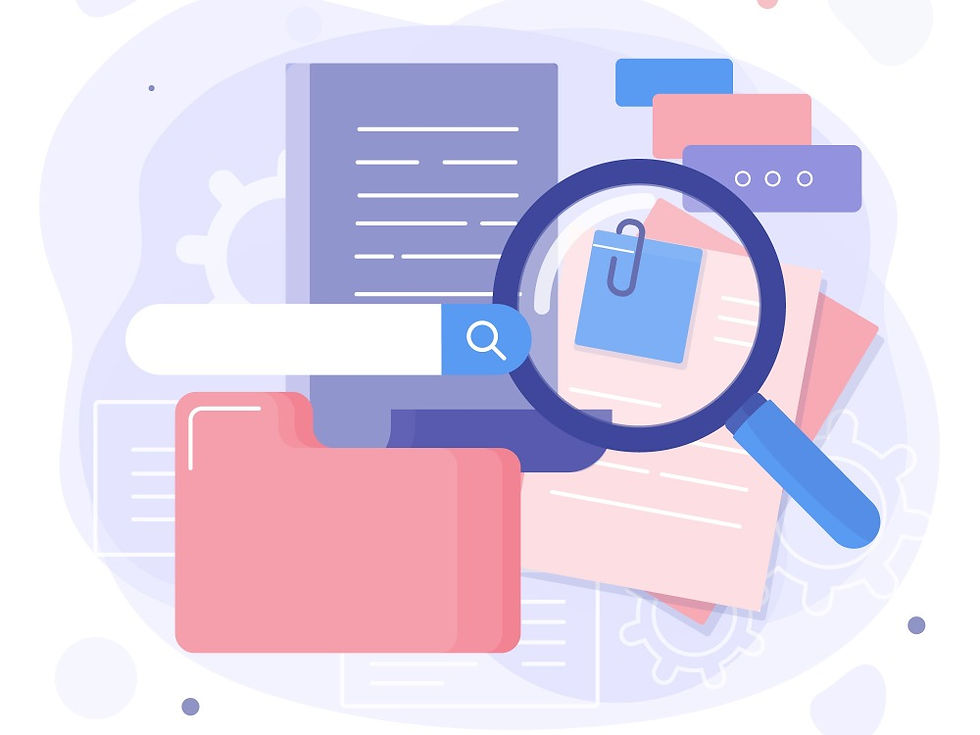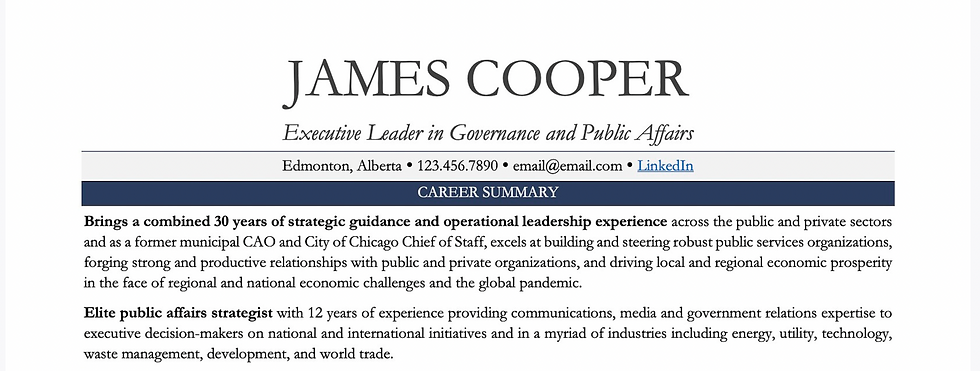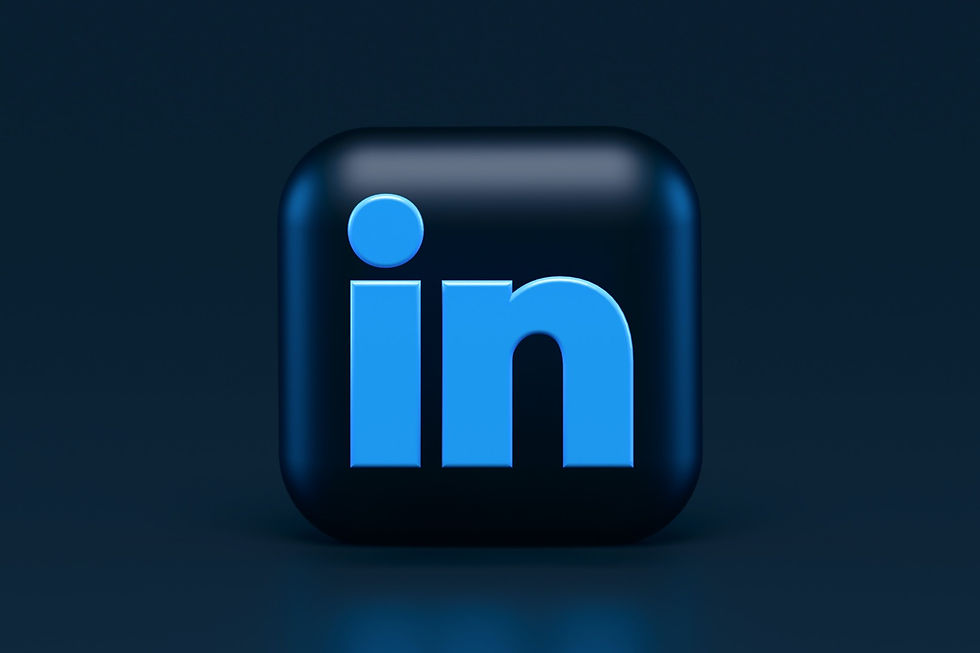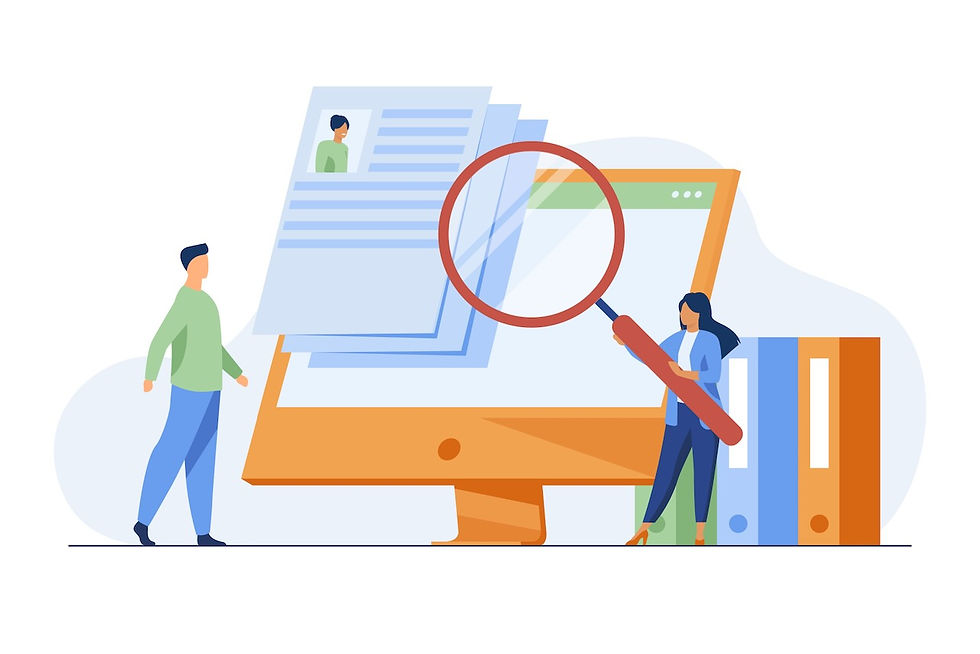Resources for job seekers in 2024
- James Cooper
- Sep 14, 2022
- 5 min read
Updated: Aug 17, 2024

This year has been a fairly unusual one in the North American job market. What started out as an uncertain year due to the Covid19 pandemic has turned into a fairly opportune moment in time for job seekers.
According to the U.S. Bureau of Labor Statistics, 10.7 million jobs were available at the end of June 2022, meaning that there were two job openings for every unemployed American.
In Canada, a low unemployment to job vacancy ratio means employers are having a difficult time finding and retaining staff while at the same time making it easier for professionals to land the jobs they want.
Despite all of this, many professionals continue to struggle with all stages of the job search process. In this article, I'm going to highlight resources for those that are finding it difficult to find and land the job they want. I'm going to cover four key areas:
1) Resume Writing

Let's face it, resume writing can be a pain on the best of days and it's something that many people struggle with.
The fact is, most people fall into one of four camps:
They're not comfortable selling themselves on paper
They haven't needed a resume in a long time and have no clue where to start
They're making a career switch and aren't sure which skills and experiences to emphasize and which to downplay
They've tried and tried but just can't seem to get employers to notice them
There's also the added complication of conflicting career advice. If you've been on the LinkedIn recently, you've probably noticed that every person and their dog has a different opinion of how your resume should be written, formatted, and structured. A few examples:
One page versus two page resumes
Summaries versus no summaries
Graphical versus plain resumes
The list goes on. For that reason, I don't blame anybody for throwing their hands up in the air in utter frustration.
Below are a few resume writing resources that I have personally developed or have reviewed and can vouch for.
Reddit is one of the largest (if not the largest) collection of communities that centre around common interests.
The r/resumes and r/finaldraftresumes subreddits are two communities with a combined 1.3 million members.
Amy Miller is a Senior Technical Recruiter that provides her viewers with a glimpse into the life of a recruiter as well as no-nonsense resume writing, LinkedIn, and job search advice.
2) LinkedIn Profile Writing

You might hear some people say that a resume and a LinkedIn profile are the same, but if you ask me, I think they serve two different functions.
Here's why:
Your resume is a privileged and confidential document that you should only share with select individuals for the purposes of generating interviews and job offers. On the other hand, a LinkedIn profile is a public facing page that just about anybody can see.
If you were a restaurant, your LinkedIn profile would be sort of like the flyer that brings people through the door and your resume would be the menu you give them when they want to see what you have to offer.
As with any promotion, you'll need a polished profile to capture recruiter's interest and bring them in. The key components of a strong profile are (in order of importance):
LinkedIn Profile Headline
About Me/Summary
Work Experience
Recommendations
Profile Picture
The language and tone used on LinkedIn are quite different than what you'd use on your resume, which is typically more business communications-like.
I personally prefer a conversational tone that gives my visitors the impression I'm speaking to them directly.
If writing content for your LinkedIn profile isn't your forte, you'll find this LinkedIn Headline and Summary Guide quite useful. For the price of three cups of coffee at your local Starbucks, you'll get detailed instructions on how to develop a headline and summary that serve one purpose: sell you to your target audience.
3) Job Search

Once your resume and LinkedIn profile are updated and ready to go, the next step is actually finding those coveted job opportunities.
Below are a collection of job search resources that I've personally vetted and found to be incredibly useful.
You won't find the traditional resources like Indeed and LinkedIn here, as I'm sure you're already familiar with those by now.
So with further ado.
Candor: As company that has created a handy tool that shows which companies have implemented hiring freezes and which are currently hiring.
JobScan's ultimate list of companies still hiring (updated live). This list of companies continuing to hire, pausing hiring efforts, or enduring layoffs has been compiled from multiple public lists and news sources.
Flexjobs: A website that helps job seekers find remote and hybrid work opportunities.
Remotive: A place to find software development, product management, and customer service jobs.
Boldly: A premium subscription staffing company that provides project managers, executive assistants, and marketing staff to employers looking to quickly fill positions with talented personnel. Boldly is unique because it hires job seekers on as W-2s so they receive all the benefits of full time employees.
Remote.co: An online job portal that provides job seekers with up to date information on available remote work opportunities.
We Work Remotely: Bills itself as the largest remote work community in the world.
4) Interview Preparation

You've started applying and the calls are starting to roll in. Next step: the interview.
For most job seekers, this is the most challenging stage of the hiring process and the one that requires the most preparation.
Interview preparation is something everyone should practice, even those that don't typically struggle with it. Preparing beforehand can include:
Preparing thoughtful answers to common interview questions.
Reviewing your career successes - be prepared to give detailed accounts of your contributions during prior roles. This includes details of the challenges you faced, the process you adopted, and the outcome you were able to achieve.
Below are some of my favourite resources for job seekers that need a little bit of extra help with this stage:
SHRM: You might not initially think it, but the Society for Human Resources Management is an excellent resource for professionals looking to refine their interviewing skills. On their website, you'll find samples of behavioural, situational, and general interview questions that you can use as part of mock interview training or even just for knowing what to expect.
Udemy: An online learning platform where you can go to build up your skills in hundreds of areas, job interviews included.
Gainlo: Get real feedback from other professionals in a mock interview setting.
Want to take the hassle out of writing a phenomenal resume?
That's where we can help – we have over 20 years of combined experience in recruiting and career coaching. James (cofounder of Final Draft Resumes), has helped hundreds of people from almost every industry and every experience level (CEOs to new graduates and everything in between).
To learn more about your services and find out if we're a good fit for your needs, see the buttons below 👇
If you're more of a DIY person, I got your back too! Try Resumatic - an AI resume builder that'll guide you through the resume writing process step by step.
About the Author
James Cooper is a Professional Resume Writer, member of the Professional Association of Resume Writers & Career Coaches (PARWCC) and has been in the recruiting, career coaching, and writing business for almost 14 years. He began his career recruiting for AECOM, a Canadian engineering firm, and he's gone on to work with and help professionals land roles at top Fortune 500 companies.
Have questions about resume writing? Reach out at jc@finaldraftresumes.com.
Enjoyed this article? Subscribe to James weekly newsletter.
Comments